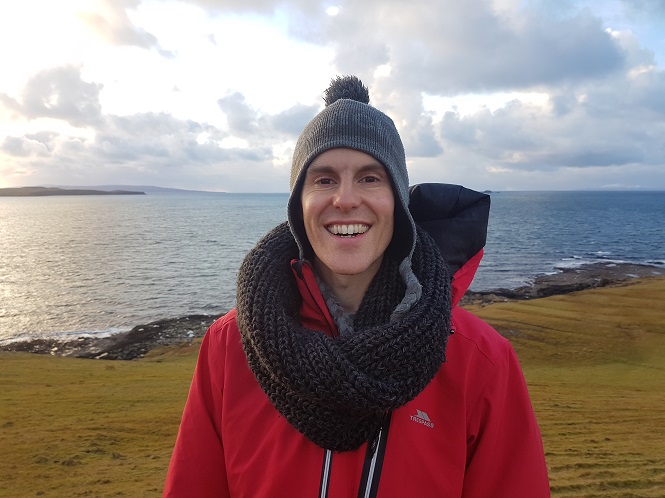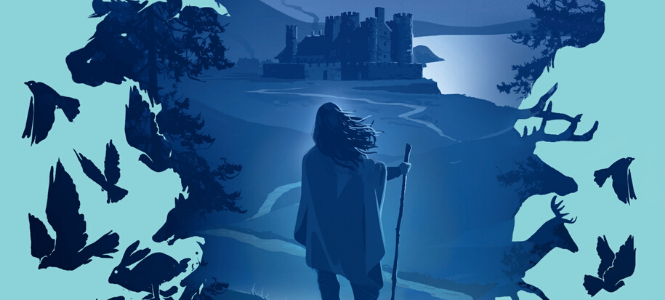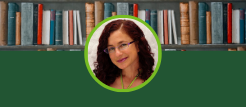Joseph Elliott is a London-based writer and actor, known for his work in children’s television including the CBeebies series Swashbuckle. His commitment to serving children with special education needs was instilled at a young age: his mother is a teacher trained in special needs education, and his parents provided respite foster care for children with additional needs. He has worked at a recreational centre for children with learning disabilities and as a teaching assistant at Westminster Special Schools. The heroine of his first book, The Good Hawk, was inspired by the many incredible children he has worked with, especially those with Down’s syndrome.
Today, Joseph’s on the blog to talk about his journey to writing The Good Hawk and the importance of diversity in literature for young people. Read on!
The Good Hawk is an epic fantasy adventure, set in a mythic version of Scotland, with warring clans, magical creatures and mysterious plagues. One of the first things I knew about the book – before I’d written a single word – was that one of the main characters would have Down’s syndrome. The decision seemed obvious to me. I was working in a special needs school at the time as a teaching assistant, so children with additional needs were the children I knew best. I didn’t think of it as a particularly radical choice, I was just drawing on my own experiences and writing the kind of character I thought the children I was teaching might be able to relate to. I’d never read a book featuring a protagonist with Down’s syndrome and it didn’t seem fair that the children I knew didn’t have any aspirational figures in literature that looked and processed the world like they did.
So I created Agatha, one of the protagonists in The Good Hawk. Although she has Down’s syndrome, the novel is not about the condition. In fact, quite the opposite. In many ways her Down’s syndrome is incidental to the plot. It is true that some people in her clan treat her differently on account of it, but it never defines her. She is brave, loyal, feisty, impulsive, compassionate and kind; a teenage girl with lots to say about the world around her.
I was keen for my portrayal of Down’s syndrome to be as authentic as possible and, with that aim in mind, my publishers hired three sensitivity readers – a girl with Down’s syndrome and two parents who have teenagers with Down’s syndrome. Their feedback was really useful, and I made quite a few tweaks to the text in line with their suggestions. For example, one highlighted a couple of instances where they thought Agatha may struggle to perform certain tasks due to her limited fine motor skills, and another pointed out a few words other characters used when speaking to Agatha that she might not be able to understand. Sensitivity readers have become increasingly popular in the last few years and, in my experience, they can be really valuable.

Inclusivity is so important within all forms of media, but particularly in books for children. If children don’t see themselves in the books they read, it can give them the impression that society deems them as less worthy. At the same time, exposing all children to a rich, diverse collection of characters helps them to challenge existing preconceptions and teaches them to value and respect everyone equally, even those who may be perceived as different to themselves.
I think the book industry is slowly recognising the need for increased diversity. Last year saw the release of the brilliant YA novel Rosie Loves Jack by Mel Darbon, which has a wonderful lead character with Down’s syndrome, and I know there are more out there. Change is always slow, but it’s heading in the right direction. I hope Agatha and The Good Hawk help play their part in proving that, no matter who you are and how others perceive you, you can achieve remarkable things.
–Joseph Elliott

The Good Hawk
Shadow Skye: Book 1
If everything was taken from you, what would you do to get it back?
Agatha patrols the sea wall with pride, despite those in her clan who question her right to be there, because of the condition she was born with. Jaime is a reluctant Angler, full of self-doubt and afraid of the sea. When disaster strikes, the pair must embark on a terrifying journey to a land where forgotten magic and dark secrets lurk in every shadow...







 Ten Terrifying Questions with Deborah Abela
Ten Terrifying Questions with Deborah Abela  Ten Terrifying Questions with Terri Libenson!
Ten Terrifying Questions with Terri Libenson!  Ten Terrifying Questions with Charlie Archbold!
Ten Terrifying Questions with Charlie Archbold!
Comments
February 13, 2020 at 8:27 pm
Great interview! Thanks for sharing! I recently finished reading The Good Hawk and was so impressed that Elliott had chosen to focus on a protagonist with Down’s syndrome. It is great to know his inspiration behind this decision.
May 3, 2021 at 7:46 pm
What values does each character have and the book show?